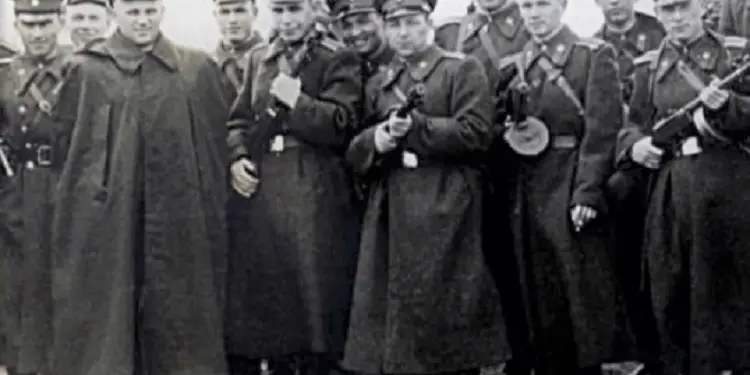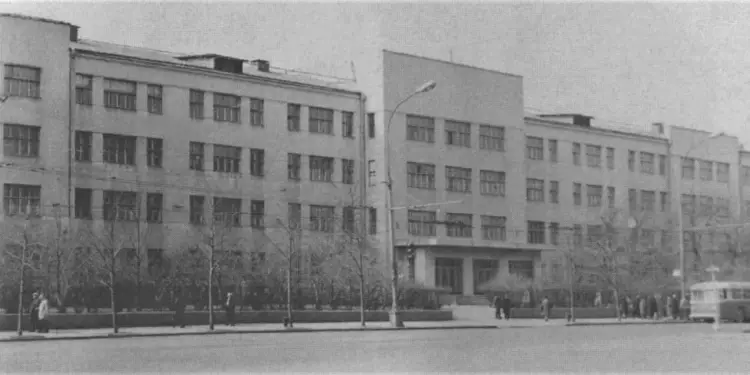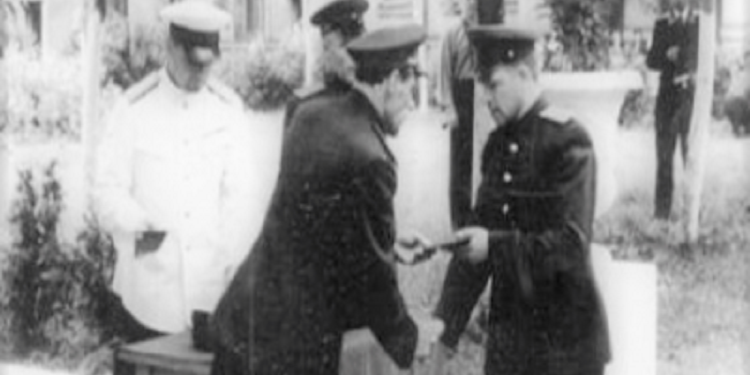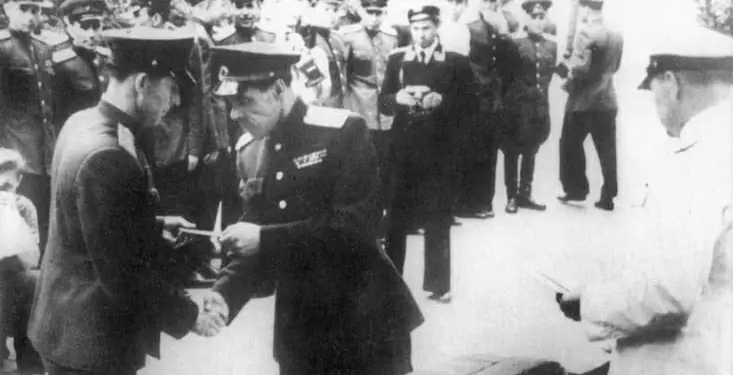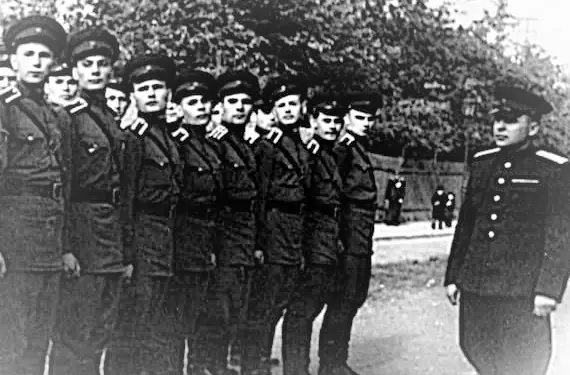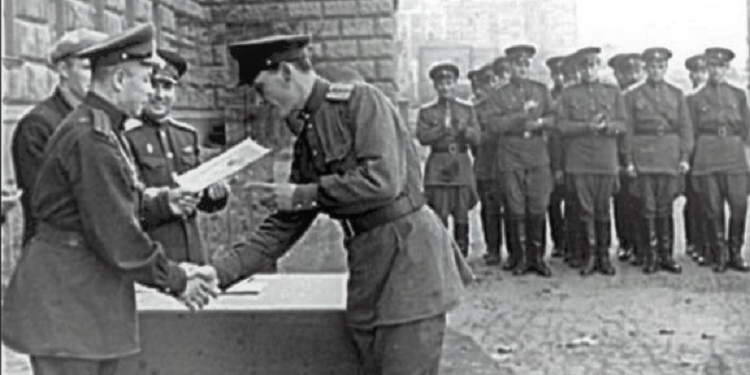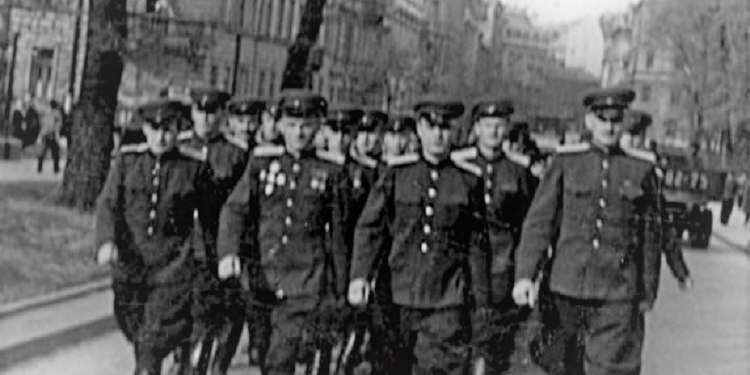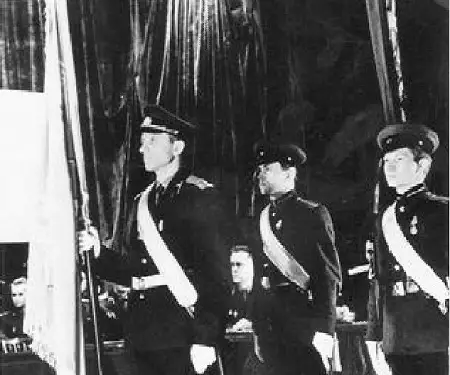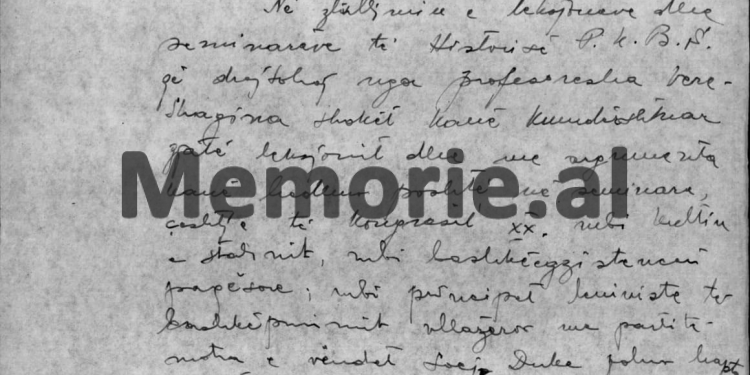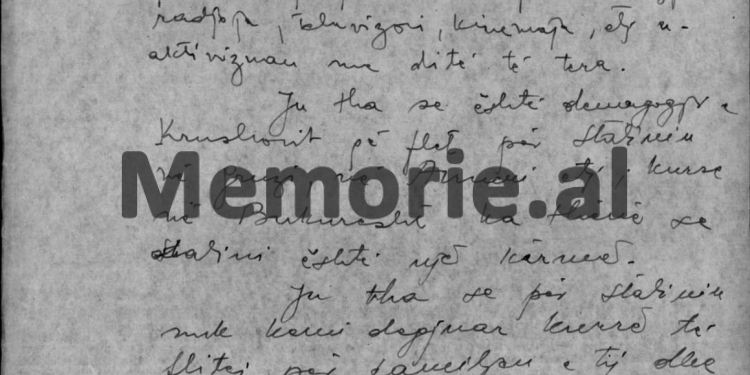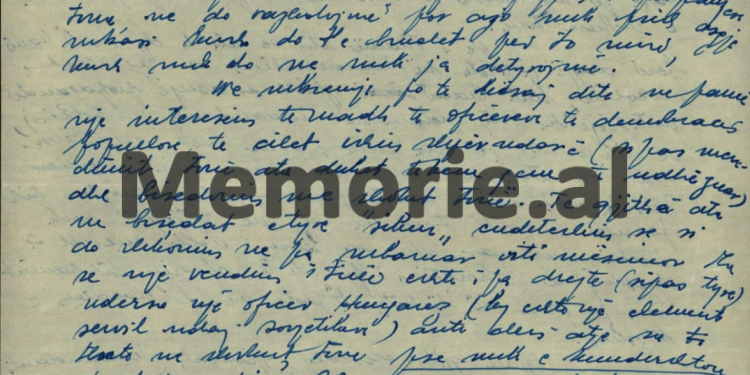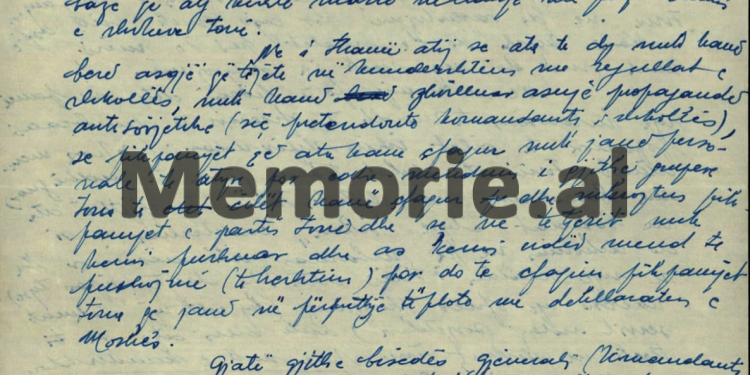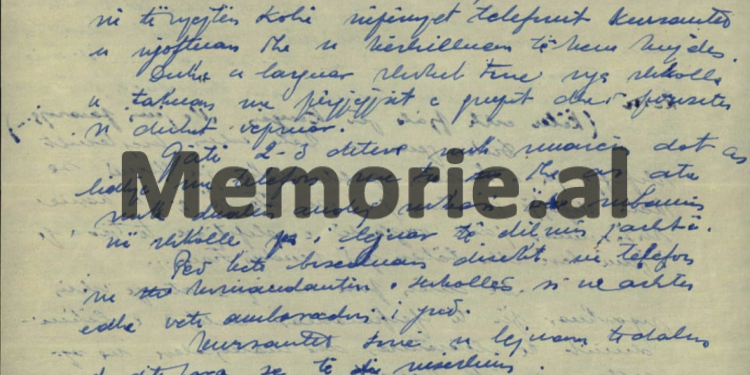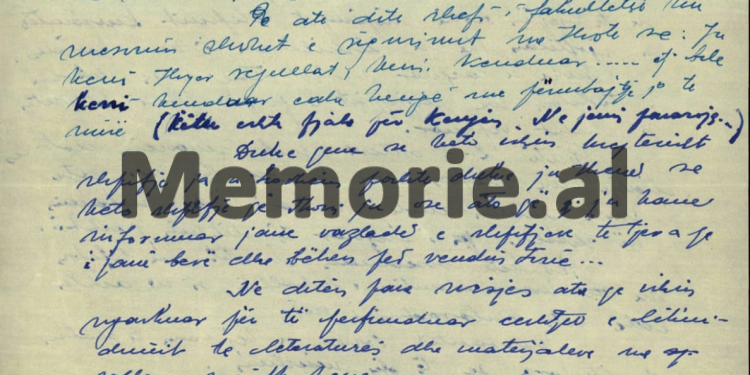Dashnor Kaloçi
Part six
Memorie.al publishes some archival documents with the initials “Top secret”, issued by the Central State Archive in Tirana (Fund of the former Central Committee of the ALP) which belong to 1961 and are part of a voluminous folder with letters , reports, information, reports, instructions, petitions, etc., where it comes to the beginning of contradictions and the breakdown of official Tirana’s relations with the Soviet Union, which at that time was very much felt by Albanian students who were then studying in schools and universities of the Soviet Union, who, by order received from Tirana, discontinued their studies and waited for instructions to return to Albania. The complete file of Albanian students in the former Soviet Union, where most of them, mainly those who attended Military Academies, High School of State Security, Police, Border, Justice, etc., had major problems and were met with many vicissitudes with the official Russian authorities, leading to the measure of arrest as well as the intervention of the Albanian military attaché in Moscow, Major General Halim Ramohito, to unblock the situation and return the Albanian military students to their homeland.
Continued from the previous issue
Fund: CENTRAL COMMITTEE OF THE ALBANIAN LABOR PARTY.
(Foreign Directorate)
Content: RELATIONS OF INFORMATION BY RESPONDENT GROUPS OF ORGANIZATION BASED AND STAFF OF THE BODIES OF AFFAIRS WHICH HAVE BEEN FOR STUDIES IN SCHOOLS SECURITY, POLICE, BORDER, AND JUSTICE, in the Soviet Union, where it is ON COMMUNICATION FOR REMOVAL FROM SCHOOL AND RETURN OF OFFICERS AND STUDENTS, CONVERSATIONS THAT HAVE DEVELOPED IN SEMINARS, WITH PEDAGOGISTS AND OTHER PERSONS RELATED TO THE POLITICAL CONTRADICTIONS OF THE IDEOLOGIANS AND THE IDEOLOGIANS
Report
Tirana on 9.6.1961
Regarding the conversations held by the comrades of group II, who were studying at the High School of State Security in Moscow, on the political and ideological contradictions that were developed by the pedagogues of the school?
In the course of lectures and seminars on the subject of the history of the Communist Party of the Soviet Union, given by Professor Vereshagina, the comrades objected with arguments during the lecture and rejected in seminars, the issue of the XX Congress on the Stalin Cult, on peaceful coexistence, on the Leninist principles of fraternal cooperation of sister parties, etc.
Speaking openly our comrades has unmasked the attacks of the Soviet government and K.Q. of P.K. of the USSR, towards our country, and more specifically:
When talking about the great successes of the Soviet Union, they were dedicated to the Central Committee of the Communist Party of the Soviet Union. Whereas when it came to failures, mistakes, negativities, and shortcomings, in various spheres of life of the country, they, especially during the War, they were attributed to Stalin.
In connection with this aspect, the comrades have asked this question: “Why do successes belong only to the Party, while Stalin is mentioned only for mistakes”?! If Stalin is valued as you say, then why is he not talked about at all, not even mentioned in historical dates, nor his birthday, nor his death.
And for Shevchenko, a former reactionary poet, the press, radio, television, cinema, were activated for days?! You were told that this was Khrushchev’s demagoguery about Stalin in the Caucasus, and at the Bucharest Summit, Nikita said of him that Stalin was a criminal.
He told you that they did not hear anything about Stalin from his family, whether he had a wife or children, etc. When Khrushchev went to France, he took 15 of his grandchildren with him, while his wife Nina gave an interview to reporters.
One of the criticisms leveled at Stalin is the concentration of Power and the Party in the hands of a single man. We asked you how this is possible, since Khrushchev is already doing this?!
We were told that this aspect, too, was demagoguery of his. They told us that in recent years, Stalin did not regularly convene party forums, and arbitrarily expelled members from the K.Q. of the Party.
We asked him: if this is so, then how it possible is that Khrushchev also expelled Zhukov from K.Q. of the Party, when the latter was not present at the meeting, but was visiting Albania?!
We were justified, giving us examples that: Khrushchev recently, during the meetings, announced the decoration of the discussants, disregarding neither the organs of the Party, nor the Supreme Soviet, of the Soviet Union. You criticize Stalin for his relations with Yugoslavia.
We also had heated discussions with professors on the issue of the Moscow Declaration in 1961. We asked him why your press did not write anything about Yugoslav revisionism when you yourself stated in the Moscow Declaration about them: are they the main danger in the world communist movement?! And about that I said to him: you are violating the statement. When it came to the newly liberated countries in Asia and Africa, you said that these countries are being helped because by themselves, they will achieve socialism.
We pointed out that their government was helping Nasser who was persecuting the communists, they were helping Nehru of India and Sukarno of Indonesia who were oppressing the people and establishing relations with the leaders of world capitalism. We also debated these issues with the professor of Political Economy, who told us that the USSR is helping these poor countries, so that they do not fall into the lap of the Americans, who can build military bases there. So, by helping these Third World countries, we also encourage the growth of the working class and their industrialization.
Regarding the bilateral relations of our parties, I explained especially to the professor of History of the Communist Party of the Soviet Union, the whole history of their development, even since the enemies and traitors Sadik Premte, Tuk Jakova, Bedri Spahiu, and Dali were hit. Ndreu, Liri Gega, to this day. She asked us why Liri Belishova was expelled. I explained to him that Liri Belishova, went against the Party line at the Bucharest Meeting and was therefore expelled. She was convicted as a member of the anti-party group.
What do you care about Liri Belishova’s work, or do you think she was a friend of the Soviet Union?! No, a sincere friend of the Soviet Union and the Communist Party is only comrade Enver Hoxha and the Albanian Labor Party. The only true friend of the Soviet people is the Albanian people. It is not your true friends who support you and who are the enemies of our people, like Panajot Plaku.
We are surprised with you, that even your simplest people on the streets ask us why Liri Belishova was expelled from the party?! Have we ever asked you why you expelled Molotov or Kirichenko from the party?! We did not ask you because we judged that these are internal issues of your party.
Talking about the relations between our two countries, I explained to you chronologically the whole unimaginable campaign of Khrushchev’s pressures on our party and our people, starting from the Bucharest Meeting, and continuing to the one in Moscow, the economic pressure and not sending of grain, the suspension of loans, the cessation of aid for the five-year plan, the political isolation, and finally the military pressure which we, as unacceptable.
We told him that these things violate even the most minimal principles of Leninism and that these pressures go beyond those of the Yugoslavs. We told him that right after the Moscow Declaration, Khrushchev would treat us worse than Yugoslavia, that Malinovski seriously offended the Albanian people, that Grecko, before the start of this meeting, stated that: you are temporarily members of the socialist camp, this infuriated me a lot.
The professor told me to be careful when talking about the Soviet government, and that I should speak respectfully. Then I told him that there can be no respect for those who trample on the dignity of an entire people.
Regarding all the conversations, she told us that: you Albanians understand the ‘Cult of the Individual’ correctly from a theoretical point of view, while from a practical point of view, with these questions that you raise in lessons, you seem to have one-sided information.
You, talk about what you have heard up and down and do not rely on official documents. For example, I read the speech of Comrade Enver Hoxha at the IV Congress of the ALP and I did not find any arguments against what you are telling me. In addition, he read to us parts of the greeting that Comrade Enver gave to the XX and XXI Congress, meaning that your party has approved these ideas since then.
And he said that to understand the international significance of these two congresses, you have to read his speech that is printed here in the library. Reiterating Stalin’s merits, I told him that he has the great merit of creating the socialist camp, while Khrushchev is destroying it.
Such conversations took place with two Russian language professors, namely Ana Efimova Naginia and Marina Partalla Parlovna, with whom it was the rule that we would discuss everything that happened with our two countries.
Marina Parllovna, who was also A.P. (party member), has been extremely moved and has cried several times, is telling us that we share your grief together. While Ana Efimova, stated that she felt very offended as a Soviet citizen for what is being done to you by the USSR government.
With the professor of Criminal Law, Teter, I had individual conversations about the events in Leningrad and specifically, the expulsion as unwanted of the Albanian Military Attaché from the Soviet Union.
Teterini told me that if I was told that a military attaché of a capitalist country was being persecuted and had to be expelled, I could understand that. But to expel the military attaché of a socialist country, I cannot explain.
He insisted a lot on the trial that was taking place in Tirana against the conspirators and complained that “Pravda” was not writing anything about this trial. He searched for concrete materials in Russian about this trial, but did not find any. When I communicated to them, the decision that was taken against them, he told me that they were punished very harshly. He disagreed and condemned the movie “Clean Sky”, as this movie was against Stalin.
When we asked the professor of the subject of the Special Discipline II: why during the seminars and lectures you do not say a word to us about the Yugoslav Intelligence, knowing that we Albanians are in daily conflict with them, he answered that: we have in the curriculum.
In April 1961, I, along with some fellow students, visited the Lenin Historical Museum. When we got there and started looking at him intently, we were impressed by the removal of all the pictures of Lenin with Stalin and their replacement with pictures of Khrushchev.
We were also surprised when we asked the museum guide: why were Stalin’s photos replaced with Khrushchev’s, when at the time of the revolution he was not more than 15 years old?! He laughed and did not know how to say any explanation. A friend of ours fell on his shoulder and told him that the time would come when Stalin would be put in his rightful place.
It should also be noted that from the individual conversations we had with various Soviet citizens, when they learned of our departure from the Soviet Union, they were saddened and expressed their indignation towards official Moscow. They told us not to get upset, that this matter would be clarified very soon, that you would be back here again, and so on.
Before the start of the Meeting of the Communist Parties in Moscow, the physical education professor, Dubinski, provoked a friend of ours, telling him that Enver Hoxha was obstructing the entire Albanian communist leadership and that with his actions he was wrong.
Our colleague asked this: why was Comrade Enver obstructing the Politburo and where did he find out this information?! Then he withdrew from this conversation and said that he had made a joke.
On November 29, in honor of the Homeland Liberation Day, a festive evening was organized on the school premises. But we were impressed that apart from us Albanian trainees, there were very few foreigners. To stop a possible protest of ours, the School Command brought there a group of Soviet Security cadets, who were surprised to see us, as they did not know what they had been brought there for.
After the end of the Party Congress in our country, a lecturer and specifically Lieutenant Colonel Kanavallov, asked a friend of ours, how Enver Hoxha has his position in Albania. He replied that Comrade Enver Hoxha and the party he leads have very strong positions and with sound Marxist-Leninist bases. He told you what he had to say in the Moscow Declaration.
At the end of April, I, together with my friends Qani Tartale, Dhimitër Lazar, Thanas Peçi and Perlat Çaushi, meet by chance on the street, the former Soviet adviser in the Ministry of Internal Affairs of our country, Voronin. When we asked him why he had come to Moscow, he replied that it was over and it was all over.
We told him that there was an agreement between the two respective governments on the work of advisers; he said that Albania no longer needs Soviet advisers. After a couple of days, near the school, we meet him again on the street and he addressed me with the words what does Albania say?! I told him that Albania is moving forward, and that there was great enthusiasm in this congress.
He asked me how my friend the Minister was. I told him that he was elected, Candidate of the Politburo. I know, I know, Voronin told me. I explained to him that soon in Albania, there would be a trial against the conspirators. I finally invited him to come to school one day and watch us closely.
He laughed but did not tell me he was coming. In recent days, we have noticed that our fellow trainees have been followed and monitored by the Soviet Security, and were photographed, specifically on June 3, in the English exhibition. They photographed my friend Qani Tartale, who often went to the embassy. /Memorie.al
On behalf of Group II
Group commander
Lieutenant Colonel Nuri Çakërri
6/15/1961
The next issue follows




